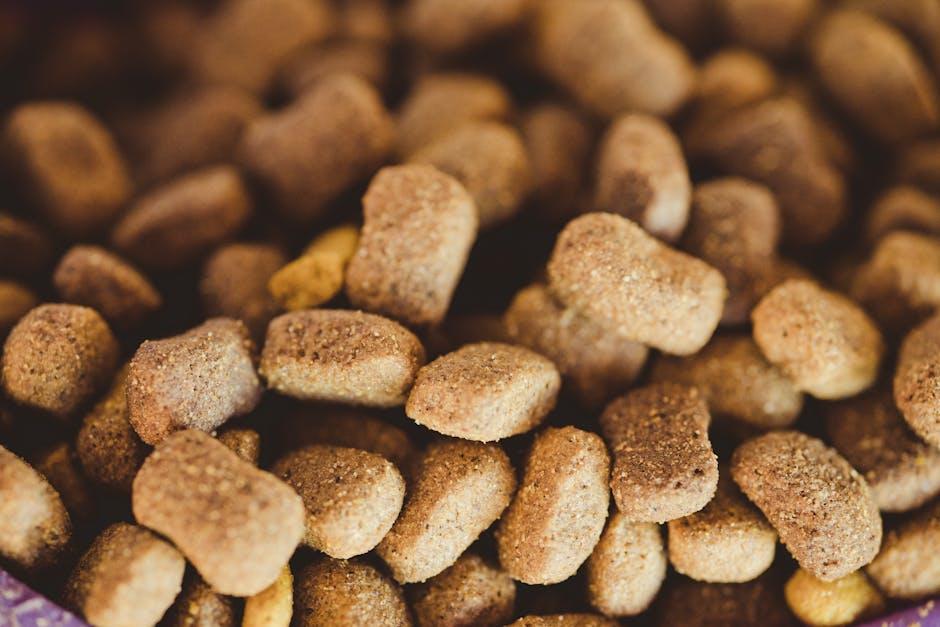Welcoming a new puppy into your home is an exciting and joyful experience, filled with playful antics and wagging tails. As you embark on this delightful journey, ensuring your puppy’s health becomes a top priority, with digestive health playing a pivotal role in their overall well-being. Puppies, with their curious nature and developing systems, are particularly susceptible to digestive issues, which can lead to discomfort and disrupt their playful spirits. In this article, we will guide you through essential steps to prevent digestive problems in your furry friend, offering practical advice and nurturing tips. From choosing the right diet to understanding common digestive challenges, our aim is to help you lay a strong foundation for your puppy’s health, ensuring they grow up happy, healthy, and full of life. Let’s explore how you can make your puppy’s tummy troubles a thing of the past, so they can focus on the important stuff—like chasing their favorite toy!
Choosing the Right Puppy Food for Optimal Digestion
Ensuring your puppy enjoys meals without any digestive hiccups starts with selecting the most suitable food. Puppy food tailored for optimal digestion is often crafted with easily digestible proteins and a balance of fibers to support a healthy gut. Look for foods that list high-quality proteins like chicken or lamb as the first ingredient. These proteins are not only digestible but also essential for muscle growth and development.
- Probiotics and Prebiotics: Foods enriched with these can significantly improve gut health. Probiotics are beneficial bacteria that aid digestion, while prebiotics serve as food for these good bacteria.
- Grain-Free Options: Some puppies may have sensitivities to grains. Opting for grain-free formulas can help alleviate any potential discomfort or allergies.
- Limited Ingredients: A limited ingredient diet can be a wise choice for puppies with sensitive stomachs, minimizing the risk of food-related reactions.
Keep an eye out for any signs of digestive distress such as diarrhea or bloating, and consult your veterinarian to adjust your puppy’s diet as needed. Remember, a gradual transition to new food is crucial to prevent any sudden digestive issues. By prioritizing your puppy’s dietary needs, you are laying the foundation for a healthy and happy life.
Establishing a Consistent Feeding Routine for Happy Tummies
Creating a regular feeding schedule is essential to nurturing your puppy’s health and well-being. By sticking to a consistent routine, you can help prevent digestive issues and ensure your little friend feels their best. Here are some tips to establish a feeding routine that supports your puppy’s happy tummy:
- Set Specific Meal Times: Choose times that fit your schedule and stick to them daily. Puppies thrive on routine, and having meals at the same time each day helps regulate their digestive system.
- Choose the Right Food: Select a high-quality puppy food that meets all their nutritional needs. Look for options with balanced proteins, fats, and carbohydrates to support their growth.
- Monitor Portion Sizes: Overfeeding can lead to digestive problems and obesity. Follow the recommended serving sizes on the puppy food packaging and adjust as needed based on your puppy’s activity level and growth.
By incorporating these practices into your daily routine, you’ll be setting the stage for a lifetime of healthy eating habits for your puppy. Remember, consistency is key to a happy and healthy digestive system!

Recognizing and Avoiding Common Dietary Triggers
Ensuring your puppy has a healthy diet can be a bit of a puzzle, especially when trying to pinpoint what might upset their little tummies. Recognizing potential dietary triggers is crucial to maintaining their overall well-being. Some foods that are perfectly safe for humans can be harmful to puppies, leading to digestive issues.
- Dairy Products: While some puppies can tolerate dairy, many are lactose intolerant. Feeding them milk, cheese, or yogurt might cause upset stomachs, leading to diarrhea or gas.
- Fatty Foods: Foods high in fat can be difficult for puppies to digest and may even cause pancreatitis. Avoid feeding them fatty cuts of meat or greasy leftovers from your meals.
- Spicy or Seasoned Foods: Puppies’ digestive systems are sensitive, and spicy or heavily seasoned foods can lead to irritation or discomfort.
- Human Snacks: Items like chocolate, grapes, and onions are toxic to dogs and should be kept well out of reach.
To avoid these common dietary pitfalls, opt for high-quality puppy food specifically designed to meet their nutritional needs. Introduce any new foods gradually and monitor for any signs of digestive distress. Remember, a consistent diet with controlled portions will help your puppy thrive and grow healthily. By being mindful of these triggers, you can help ensure your furry friend enjoys a happy and comfortable life.
















